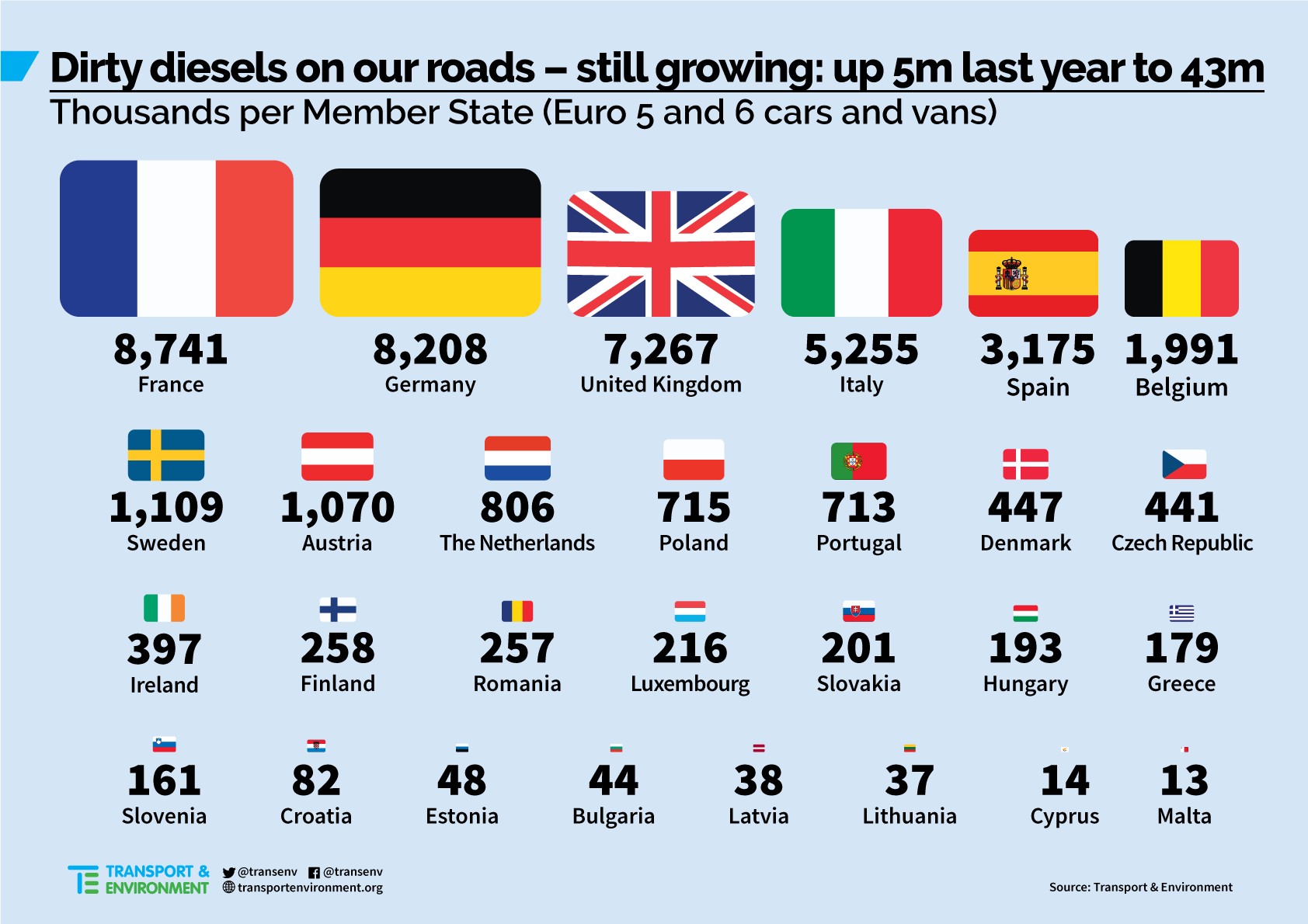
Interested in this kind of news?
Receive them directly in your inbox. Delivered once a week.
Three years ago the German carmaker Volkswagen was discovered rigging its emissions readings by using special software to cheat the tests. What became known as the ‘Dieselgate’ scandal was supposed to be a turning point in cleaning up pollutant emissions from vehicles. Together with improvements to vehicle emissions testing methods, and EU air quality levels that governments were obliged to meet, the 28 EU countries believed they were on their way to guaranteeing minimum standards of air quality. That is now in serious doubt.
A report into air quality standards by the EU’s Court of Auditors published last month says: ‘European citizens still breathe harmful air mostly due to weak legislation and poor policy implementation.’ It criticises the EU Ambient Air Quality Directive for being weaker than the World Health Organisation’s guidelines, member states for not implementing the measures required, and the European Commission for failing to guarantee citizens easy access to reliable air quality data.
T&E’s clean vehicles officer, Yoann Le Petit, said: ‘This is yet another wake-up call for the EU to seriously tackle the air pollution crisis we face every day. The Court of Auditors underlines not only that EU air quality limits are out of touch with scientific recommendations; they also stress that even these lenient goals are not met by most governments, while the Commission has too little power to enforce EU rules. As a result, too many member states put their efforts into hiding the real extent of the problem from their citizens rather than cleaning up the air.’
Meanwhile areport by T&E says there are now 14 million more ‘dirty diesels’ on Europe’s roads than when the Dieselgate scandal broke in 2015. The report Cars with engines – can they ever be clean? was released on the third anniversary of Dieselgate and suggests that, far from the scandal marking a turning point, not much has changed. A new testing procedure, the WLTP, has replaced the discredited NEDC method of testing the emissions of new vehicles, but even the WLTP is based on laboratory rather than on-road conditions. A Real-Driving Emissions (RDE) test has been in place for NOx and particles since last year and uses on-road conditions, but even a new diesel car approved under the test can belch out NOx emissions nine times the legal limit, the report shows
T&E’s clean vehicles engineer Florent Grelier said: ‘The data show that cars with internal combustion engines were not clean in the past, are not clean today, and will not be clean in the foreseeable future. Three years after Dieselgate, it is shocking that the number of dirty diesel cars and vans on the road today is still rising, and with the average lifetime of a car, many of these diesels will be around for a while – many of them exported eastwards and ending up in Africa.
‘If the EU does not act to prevent the sale of dirty diesels or ban their use until they are properly fixed, these cars will be polluting the air of cities around the world for decades and, in the process, shortening lives. And the long-term solutionis to accelerate the shift to zero-emission technology and electromobility.’
When the Dieselgate scandal broke in September 2015, there were 29 million dirty diesels on the road – defined as being three times above the EU’s standard emissions limit as measured under the RDE test. Three years later, the numbers of grossly polluting diesel cars and vans on the road are still rising. T&E’s report estimates that there are now 43 million, with France topping the list with 8.7m, 8.2m in Germany, 7.3m in the UK, and 5.3m in Italy.
Only patchy fixes have so far been offered to the millions of affected drivers in a handful of member states. Last week a deal between the environment and pro-industry ministries was reached in Germany. It included a toothless commitment to retrofit and give cash handouts, which are designed to prop up declining diesel sales. The deal will do nothing to save the discredited diesel technology, and it fails to comprehensively fix the millions of dirty diesels across the continent.


